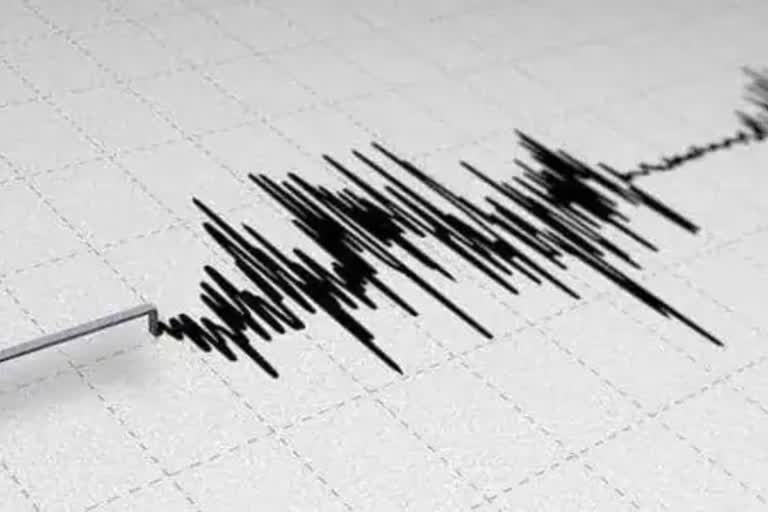Hyderabad: Two earthquakes of magnitude 7 and 5 struck in the Kermadec Islands region, located north of New Zealand, on Thursday morning, according to a Unites States Geological Survey (USGS) statement. The first quake with M7 struck at 6.26 am. Another quake of magnitude 5 struck the uninhabited islands of New Zealand fifty minutes later. This was also recorded by the USGS.
The first quake was reported at a depth of 22 km and hazardous tsunami waves are possible for coasts located within 300 kilometers of the epicenter, said one of the warnings issued by the agency in case of high-intensity quakes. The second quake was reported at a depth of 10 km.
-
No #tsunami threat to Australia from magnitude 6.8 #earthquake near Kermadec Islands Region, north of New Zealand. Latest advice at https://t.co/Tynv3ZQpEq. pic.twitter.com/kZMIUpdrNb
— Bureau of Meteorology, Australia (@BOM_au) March 16, 2023 " class="align-text-top noRightClick twitterSection" data="
">No #tsunami threat to Australia from magnitude 6.8 #earthquake near Kermadec Islands Region, north of New Zealand. Latest advice at https://t.co/Tynv3ZQpEq. pic.twitter.com/kZMIUpdrNb
— Bureau of Meteorology, Australia (@BOM_au) March 16, 2023No #tsunami threat to Australia from magnitude 6.8 #earthquake near Kermadec Islands Region, north of New Zealand. Latest advice at https://t.co/Tynv3ZQpEq. pic.twitter.com/kZMIUpdrNb
— Bureau of Meteorology, Australia (@BOM_au) March 16, 2023
"There is no tsunami threat to New Zealand following the M7.0 earthquake in the Southern Kermadec Islands. Remember, if an earthquake is long or strong, get gone. For more info about tsunami preparedness go to", the National Emergency Management Agency of New Zealand wrote on Twitter, sharing a link to the emergency preparation advisory page in their website. "There is no tsunami threat to Australia", a tweet put out by the Bureau of Meteorology, Australia said. A similar statement was issued by the USGS as well.
-
Notable quake, preliminary info: M 7.0 - Kermadec Islands region https://t.co/zwWR2PZJfQ
— USGS Earthquakes (@USGS_Quakes) March 16, 2023 " class="align-text-top noRightClick twitterSection" data="
">Notable quake, preliminary info: M 7.0 - Kermadec Islands region https://t.co/zwWR2PZJfQ
— USGS Earthquakes (@USGS_Quakes) March 16, 2023Notable quake, preliminary info: M 7.0 - Kermadec Islands region https://t.co/zwWR2PZJfQ
— USGS Earthquakes (@USGS_Quakes) March 16, 2023
Kermadec Islands are a group of small islands in the north of New Zealand. They are all part of New Zealand and are not inhabited by the people except for the last outpost of the New Zealand in the north. The total land area of these islands are about 33.6 square km. It has a permanently manned Raoul Island Station. The island a state-run meteorological station, a radio station and a hostel for Department of Conservation (DOC) officers.
Why earthquakes are frequent in New Zealand?
New Zealand is seated on the edges of two major tectonic plates – the Pacific Plate and the Australian Plate. This makes it prone to earthquakes. The island country is also located on the edge of an intense seismic activity zone commonly known as the 'Ring of Fire'.
Every year, New Zealand is shaken by several thousands of earthquakes, according to the Country's seismology monitoring department. It says most of the quakes are too small to feel, however, some earthquakes do generate enough shakes that cause significant damage to the infrastructure and life.



